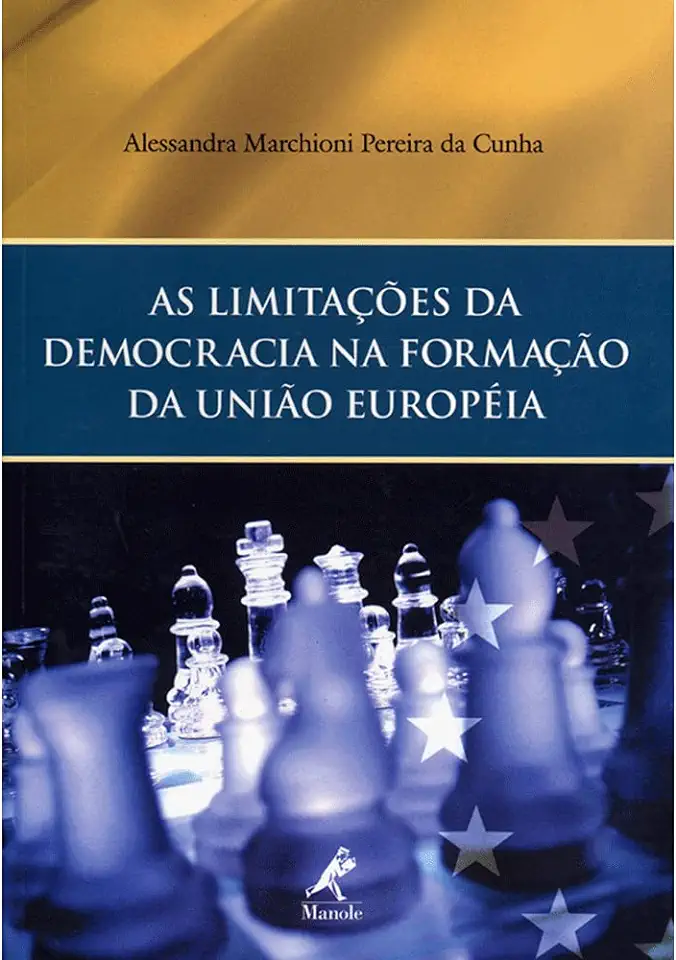
The Limits of Democracy in the Formation of the European Union - Alessandra Marchioni Pereira da Cunha
The Limits of Democracy in the Formation of the European Union
Introduction
In her book, "The Limits of Democracy in the Formation of the European Union," Alessandra Marchioni Pereira da Cunha argues that the European Union (EU) is not as democratic as it could be. She contends that the EU's institutions are not sufficiently accountable to the people of Europe, and that the EU's decision-making processes are often opaque and undemocratic.
The EU's Democratic Deficit
Cunha identifies a number of factors that contribute to the EU's democratic deficit. First, she argues that the EU's institutions are not directly elected by the people of Europe. The European Parliament is the only directly elected EU institution, but it has limited powers. The European Commission, which is the EU's executive body, is appointed by the European Council, which is made up of the heads of state or government of the EU member states.
Second, Cunha argues that the EU's decision-making processes are often opaque and undemocratic. The EU's institutions often make decisions behind closed doors, and the public is not given sufficient information about how decisions are made. This lack of transparency makes it difficult for the people of Europe to hold their elected representatives accountable.
Third, Cunha argues that the EU's policies are often not in the best interests of the people of Europe. The EU's policies are often driven by the interests of powerful economic and political elites, rather than by the needs of ordinary citizens. This has led to a growing sense of alienation among the people of Europe, who feel that they have no say in how the EU is run.
The Consequences of the EU's Democratic Deficit
Cunha argues that the EU's democratic deficit has a number of negative consequences. First, it has led to a decline in trust in the EU among the people of Europe. This decline in trust is reflected in the low voter turnout in EU elections. In the 2019 European Parliament election, only 50.6% of eligible voters turned out to vote.
Second, the EU's democratic deficit has made it more difficult for the EU to address the challenges it faces. The EU is facing a number of challenges, including the rise of populism, the refugee crisis, and the climate crisis. These challenges require a strong and united EU, but the EU's democratic deficit makes it difficult for the EU to take decisive action.
Third, the EU's democratic deficit has damaged the EU's reputation in the world. The EU is often seen as a bureaucratic and undemocratic institution. This has made it difficult for the EU to build strong relationships with other countries.
Recommendations for Reform
Cunha concludes her book by making a number of recommendations for reforming the EU. She argues that the EU needs to become more democratic, more transparent, and more accountable to the people of Europe. She also argues that the EU needs to adopt policies that are in the best interests of the people of Europe, rather than the interests of powerful economic and political elites.
Cunha's book is a valuable contribution to the debate about the future of the EU. She provides a clear and concise analysis of the EU's democratic deficit, and she makes a number of thoughtful recommendations for reform. Her book is essential reading for anyone who is interested in the future of the EU.
Conclusion
"The Limits of Democracy in the Formation of the European Union" is a must-read for anyone interested in the future of the European Union. Cunha provides a clear and concise analysis of the EU's democratic deficit, and she makes a number of thoughtful recommendations for reform. Her book is essential reading for anyone who wants to understand the challenges facing the EU and how to overcome them.
Enjoyed the summary? Discover all the details and take your reading to the next level — [click here to view the book on Amazon!]